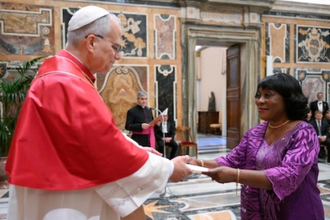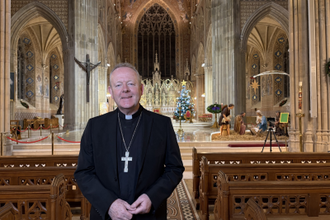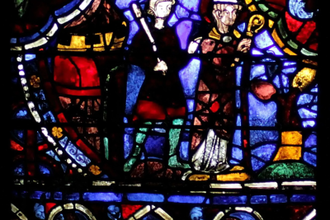Christians and Muslims in Asia; Blasphemy Laws in Pakistan

Fr Robert McCulloch
The following talk was given to The Church Up Close Seminar, Pontifical University of the Holy Cross, Rome, on 13 September 2018.
I have been asked to give some perspectives about the current situation of Christians and Muslims in Asia with a specific emphasis on Pakistan and the issues regarding blasphemy in Muslim countries.
My first contact with The Church Up Close Seminars at the Pontifical University of the Holy Cross began four years ago when I facilitated a Muslim journalist from Pakistan to attend. He is now the international news editor of the second biggest media network in Pakistan. As an aside and related to this, I hope that the re-organising of the Vatican media department can implement what Pope Francis says about bridge-building and include better ways of relating to media sources in countries where the Church is often on the periphery and Christians are in a distinct minority.
I am a member of the Missionary Society of St Columban, founded exactly 100 years ago for work in China and now with a network of missionary activity in China, Asian countries including Myanmar since 1930, the Pacific and three countries in South America. I spent 34 years in Pakistan until the end of 2011. The booklet I have distributed is my annual report about some ingoing works in southeast Pakistan which continue under excellent lay administration and governance. A point I make in the report is how Pakistani Catholics assist the federal government of Pakistan in achieving the UN's Sustainable Goals for 2030. The back cover is an affirmation of the real ideological identity of Pakistan, an identity which has been through great angst and struggle especially since 1977, even until the present.
I have been the procurator- general of the Columbans here in Rome since the end of 2011. I know the title sounds grand, even like something out of Gilbert and Sullivan if you can remember what that is, so I hope the second handout [from The Far East July 2018] will help you understand what I seek to do in fulfilling this responsibility.
Complexities, overstatements, and a balance in analysis. These are the three modalities which I see as being essential for understanding the Muslim world, the situation of Christians in Muslim countries and the blasphemy laws especially in Pakistan.
Complexities: Muslims are fragmented and divided. There are more than 70 Muslims sects in Pakistan whose adherents are separate from one another. The month of Moharram began yesterday. It commemorates the beginning to the historic divide between Sunni and Shia Muslims which began in 680 at the battle of Karbala and which had the political implications of the English War of the Roses but which has taken on its own huge religious interpretations in Islam. I see the major issue for Muslims as not one of confrontation with the "West" but their ongoing inability to resolve this major ideological religious fault line among themselves that runs through the Muslim world and Muslim countries. Think immediately about Yemen and Bahrein in these terms.
It is a problem that we as Christians or coming from a Christian tradition cannot solve.
But it leads to another complexity: the lucrative supply of weapons into this ideological arena which is sanctioned and encouraged by Western, Russian and other governments and politicians. This is no more than institutionalised gun-running on an extraordinary scale. I find it incomprehensible how the British Parliament can approve the surgical bombing of Syria after the chemical warfare there while the UK is a major source of the weaponry being used by Saudi Arabia in Yemen. This is selective indignation at its commercial and capitalist best. It is little wonder that UK politicians want the Archbishop of Canterbury to stick to religion and keep out of politics.
I remember the complexities leading to the First Gulf War in 1999, the lies about "weapons of mass destruction" and the invasion of Iraq, the subsequent rise of Al Qaeda, the bombings in the USA remembered as 9/11, Afghanistan, and on and on. I was in Karachi for all this from when it began in 1991. Its result has been the destabilising of the Middle East, Libya, and even Nigeria, with serious effects in your own countries, with Christians in Muslim countries being caught in the morass and accused of being complicit in what Muslims see as an attack on Islam. Who are the real criminals? What has happened to the Chilcot Report? Why have journalists allowed it to slip into oblivion?
The religious complexity is that Muslim nations are unable to embrace and enfold Christians who are citizens of those countries into the compassion of God. Instead, Christians are treated as "dhimmi", mere second-class tolerated residents, or as legally classified and controlled "minorities" for whom it is the sacred responsibility of the Muslim "majority" to protect as laid down by the precepts of Islam. It is certainly not an overstatement to say that in our present world, in spite of claims of Muslims that Islam is a religion of peace, Islam does not engender civil and political equity and religious freedom for all.
The two Muslim countries in the Middle East where there had been a sense of equity and religious freedom for Christians were Syria and Jordan, more so Syria in spite of everything else that has gone on there. Syria is no more due to the conflicting claims of Turkey and Saudi Arabia for regional power and the involvement of the USA, Russia, Iran and other countries for their own purposes. We just need listen to the lamentations of the Syrian Christian patriarchs and church leaders for their dying nation and their disappearing people.
And in the meantime, and while all this has been happening, China has achieved a long-lasting economic and development agreement with Pakistan which gives it the dominant influence over Pakistan's economy and from which it has obtained a long-term lease of a port and a huge tract of land on the Arabian Sea, close to the Persian Gulf and the Iranian border with immediate maritime access to Africa. Few have grasped the implications of this. It is a major step in a total change in world power orientation favourable to China and is situated geographically through Pakistan with its strategic position in Asia and the Muslim world.
The blasphemy laws. Given the time available, I want to speak only about Pakistan in this regard. The blasphemy laws were introduced between 1981-1983 by the military dictator Zia ul Haq who seized power from Zulficar Ali Bhutto, the father of Benazir Bhutto in 1977. Zia ul Haq used a programme of radical islamicisation as the justification for his military take-over and his totalitarian control of the country. My theory for him doing this is that he had a seriously guilty conscience. His hands were badly stained with Muslim blood. During the Black September operations carried out by the Jordanian government from 1970-1971 to drive the Palestinian from Jordan, the general in charge of the operations was on secondment from Pakistan. None other than Zia ul Haq. And so he introduced the blasphemy laws to calm his conscience after the brutality he oversaw against the Palestinians.
These blasphemy laws, ostensibly introduced to ensure respect for Islam and its founder, can be seen to have a valid point to protect the dignity of belief and religion. However, they have consistently been mis-used and abused as a means to control and marginalize non-Muslims through a reign of fear. Capable Christian and Hindu teachers, emerging businessmen, talented students and professionals have all been brought down by false accusations of blasphemy or stand in fear of such. There are many more Muslims than non-Muslims in jail under accusation of blasphemy. This is an indication of the viciousness both in the underbelly of Pakistani society and in political life which enables and allows religion to be used through these laws to cut down anyone.
The Ahmadiyya community is in very difficult position under the blasphemy laws as they as Muslims maintain that their founder is a prophet after Mohammad. They have been declared as non-Muslim by the government of Pakistan.
In May 2012 during a meeting with the then President Asif Zardari, I put the request on behalf of Secretariat of State that he should intervene to prevent the abuse and misuse of the blasphemy laws by ensuring that each and every case be dealt with in the first instance by the highest levels of the judiciary and place in each province. He immediately agreed and did so.
Unfortunately, subsequent governments and presidents did not maintain this resolve.
The opinion of very senior lawyers in Pakistan is that the blasphemy laws are badly and incompletely written. This gives the opportunity to deal with the blasphemy laws without using the terminology of abrogating, rescinding or changing which would enable the religious fundamentalists to summon the mob onto the streets because "Islam is in danger".
The government knows that it is "between a rock and a hard place" with the blasphemy laws. The best diplomatic approach is for soft diplomacy through which other nations may support, encourage and strengthen the nerve of the Pakistan government and the Supreme Court to deal with the blasphemy laws.
How do Pakistani Christians stand all this? They have a deep spiritual reservoir of faith. That reservoir is filled especially by the text from the Holy Gospel which is given coincidentally for today at Mass for Thursday of the 23rd Sunday in Ordinary Time. It is from Luke 6:27-38. I recommend you read it. Most Pakistani Christians know it by heart. It will allow you to look into their hearts.


















